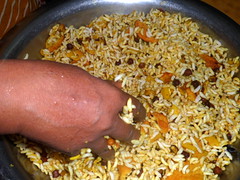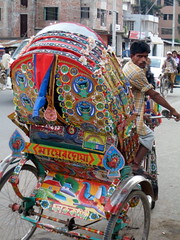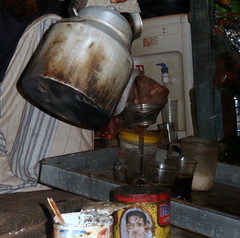With the start of Ramadan, I thought I would take a step back from disability issues to reflect on a few cultural observations from life in Bangladesh.
Let’s start with Ramadan. As the ninth month of the Islamic calendar was approaching, at least 10 different people told me that we would meet after Ramadan or take care of the project after Ramadan. I found myself wondering if the whole country would shut down for a month. I decided to fast for a couple of days to gain a better understanding of this important Muslim tradition. I will admit that I made it both harder and easier on myself by skipping the pre-dawn meal (Suhoor) and drinking water to avoid any heat stroke episodes. After feeling dizzy and cranky by day two of my fast, I gained respect for those who do it throughout the entire month. I also learned that business does not stop because of Ramadan but continues at a slower pace as people spend more time devoted to prayer and with their families. The Muslims I have met in Bangladesh are peaceful and grounded in their faith, and I wish more Americans could learn about Islam in the way I have over the past month.
On a lighter note, I have to mention rickshaws. These colorful bicycles with attached carts have become a frequent means of transportation for me. Rickshaws come with just one gear, and I often find myself wishing I could buy multiple gears for all of the rickshaws in Bangladesh when I see a man of about 100 pounds carrying a very heavy load. However, this purchase may present a financial burden for me because I have heard estimates of the number of rickshaws in Dhaka alone to be between 400,000 and 600,000!
A rickshaw ride begins with a negotiation–not over the price, but over if the driver will actually take you to your desired destination. Sometimes they would rather take a nap in the shade or drink a cup of cha (tea). When you do make it onto the rickshaw, you have to be prepared for going full speed over bumps and cutting off motorized vehicles. Rickshaws certainly contribute to the madness of Dhaka’s roads, but they add color and character to the city.
I would be remiss if I did not mention food and meal time in this blog. Although I have become somewhat comfortable eating rice and most things with my right hand, I am still amazed when people spit fish bones out on the table or eat their meal three times faster than I do. Also, every person I have met in Bangladesh (regardless of their size) has put me to shame when it comes to eating rice. They consume it in vast quantities for breakfast, lunch and dinner and will always encourage me to eat more. Finally, I have to comment on how delicious the cha is in Bangladesh. Although I have not stopped wanting coffee, I can purchase a cup of sweet, milky tea on any street corner for about $.07.
Posted By Amanda Lasik
Posted Aug 6th, 2011




